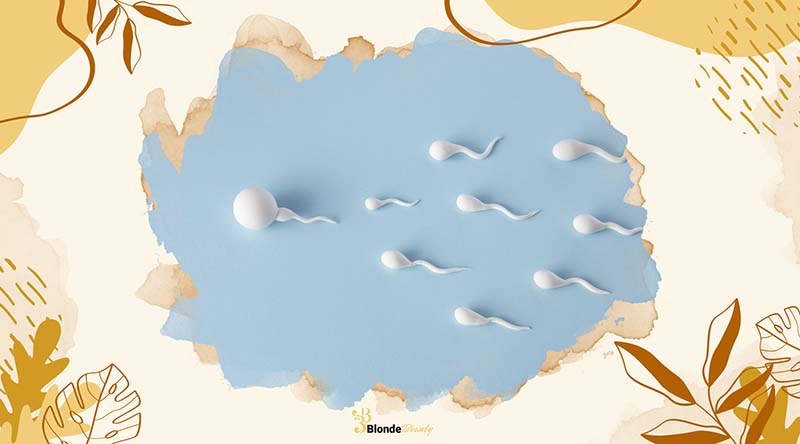Ejaculation is crucial for men’s sexual health and ability to father children, often achieved through masturbation. But many guys wonder: Is it okay to release sperm every day?
While it might seem harmless, frequent ejaculation, or the daily release of sperm, can have disadvantages. These disadvantages of releasing sperm daily can affect fertility and lead to various physical and mental issues that impact overall well-being.
An imbalance in sperm count or quality can directly affect fertility. This guide looks at the potential downsides of daily sperm release. Let’s explore for a better understanding.
You should also read the following articles:
- Does Magnesium Help with Testosterone? Effective or Not.
- Is Avocado Good for Erectile Dysfunction? Uncovering Its Benefits.
- Does Porn Cause Premature Ejaculation? Insights & Remedies.
What Happens If We Release Sperm Daily?
Exploring the impact of releasing sperm daily reveals various physiological and psychological effects, ranging from changes in semen volume to alterations in sexual behavior.
Reduced Semen Volume
Daily ejaculation can temporarily reduce sperm count as the body needs time to replenish sperm reserves.
However, this effect is usually short-term, and sperm count typically returns to normal within a few days.

Erectile Dysfunction
Excessive masturbation or ejaculation may lead to erectile dysfunction in some men, making it difficult to achieve or maintain an erection during sexual activity.

Fatigue
Engaging in daily masturbation or frequent sexual activity can lead to physical exhaustion and fatigue due to hormonal changes and energy expenditure.

Swollen Genitals
Daily masturbation may increase the risk of soreness in the genital area due to the pressure applied. Vigorous or excessive practices can potentially cause genital injuries.
Wet Dreams
Excessive masturbation may contribute to an increased frequency of wet dreams or nocturnal emissions.
This occurs because masturbation can stimulate overproduction of sperm, leading to later release during sleep.

You Become Habitual
Masturbation, being a source of sexual pleasure, can lead to the development of a habit or addiction.
Dopamine and oxytocin released during masturbation can create feelings of relaxation and pleasure, potentially leading to habitual behavior.
Altered Sexual Behaviour
Over-masturbation may result in hyper-aggressive sexual behavior patterns and unrealistic expectations from partners. This can negatively impact sexual satisfaction and strain relationships.
It’s important to be mindful of the frequency and effects of ejaculation on both physical and mental well-being. Moderation and awareness of individual limits are key to maintaining a healthy balance in sexual habits.
Tips for Maintaining Optimal Sexual Health
- Practice Safe Sex: Consistently using condoms during sexual intercourse helps prevent sexually transmitted infections (STIs) and unwanted pregnancies. Regular STI testing is also crucial for early detection and treatment.
- Maintain a Healthy Lifestyle: Eating a balanced diet, staying physically active, and getting sufficient sleep are vital for overall health, including sexual health. Obesity and a sedentary lifestyle can contribute to erectile dysfunction and other sexual issues.

- Manage Stress: Stress can negatively affect sexual health by reducing libido and causing erectile dysfunction. Engaging in stress-reducing activities like meditation, deep breathing, or yoga can help maintain sexual well-being.

- Limit Alcohol and Drug Use: Excessive alcohol and drug consumption can lead to sexual problems such as erectile dysfunction. Limiting or abstaining from these substances can support sexual health.

- Quit Smoking: Smoking is linked to erectile dysfunction and other sexual health issues. Quitting smoking can have positive effects on overall health, including sexual function.

- Regular Check-Ups: Routine check-ups with a healthcare provider allow for early detection and management of potential sexual health issues. Discuss any concerns or chyanges in sexual health openly with your healthcare provider.
- Effective Communication: Open communication with sexual partners about sexual health, desires, and concerns is crucial for maintaining a healthy and fulfilling sexual relationship. Be honest and receptive to discussions about sexual health.
- Moderation in Masturbation: While masturbation itself is not harmful, excessive or addictive behaviors can lead to exhaustion and decreased sexual desire. Maintaining a balanced approach to masturbation can help preserve sexual well-being.
By incorporating these practices into your lifestyle, you can take proactive steps to safeguard your sexual health and enhance your overall quality of life.
At What Age Does a Man Stop Ejaculating?
It’s essential to recognize that certain practices, like frequent masturbation, might contribute to a decrease in ejaculatory function. For individuals aiming to enhance their sexual well-being and curb masturbation, a practical approach could involve moderating or halting this activity.
This step, coupled with addressing any underlying health concerns, could significantly bolster one’s ejaculatory capability. Age, medication, and existing health conditions are additional factors that influence a man’s ability to ejaculate. Therefore, taking measures to minimize excessive masturbation could play a pivotal role in enhancing overall sexual health.
On the topic of ejaculation timing, especially concerning sperm sample preparation, the World Health Organization (WHO) suggests a pause in ejaculation ranging from two to seven days prior to the collection. This guideline, however, is lightly supported, and emerging studies highlight potential benefits of more regular ejaculation leading up to sperm sample submission. These benefits include improved sperm motility and DNA quality.
Conclusion
In conclusion, masturbation is a natural and healthy activity for men, serving various purposes such as stress relief, satisfaction of sexual desires, and achieving a sense of fulfillment. It can be a rejuvenating experience for many individuals.
However, it’s crucial to maintain moderation and avoid excessive masturbation and sperm release. Engaging in the disadvantages of releasing sperm daily, or overdoing it, can lead to potential health risks and adverse effects on sexual well-being. While there’s no harm in indulging in masturbation when desired, mindful practice is key to avoiding the negative impacts associated with excessive sperm release.
For more insightful articles on health and wellness, be sure to explore additional blogs from Blonde Beauty.

Laureate Professor Clare Collins
Professor Clare Collins is a leading expert in nutrition and dietetics at the School of Health Sciences, part of the College of Health, Medicine and Wellbeing. Her work is changing the way we think about food and health. She grew up as one of nine children and was the first in her family to finish high school and go to college. This background gave her a strong work ethic and a deep appreciation for seizing opportunities.
As the Director of the Hunter Medical Research Institute’s Food and Nutrition Program and a recipient of three NHMRC Research Fellowships, Professor Collins is making a big difference in public health. She focuses on helping people who are often overlooked, using new technologies like apps and online programs to improve their nutrition and reduce the risk of chronic diseases.
Professor Collins is well-respected and has been recognized as a Fellow in four major health and science organizations. She leads a diverse team of experts, including dietitians, computer scientists, and engineers, working together on global health projects.
Her achievements are impressive. She has received over $29 million in research funding, published more than 450 papers, and helped 35 PhD and Master’s students complete their degrees. She’s also active in sharing her knowledge with the public. She has developed tools like the Australian Eating Survey and the Healthy Eating Quiz, and she often appears in the media to talk about nutrition.
PUBLISHED ARTICLES
- Collins, C. (2019). “The Effect of a Pilot Dietary Intervention on Pain Outcomes in Patients Attending a Tertiary Pain Service.”
- Collins, C. (2022). “Variation in cardiovascular disease risk factors among older adults.”
- Collins, C. (2022). “Evaluation of an online intervention for improving stroke survivors’ health-related quality of life: A randomised controlled trial.”
These articles show Professor Collins’s commitment to understanding how better nutrition can improve health. Her work is important for researchers, doctors, and anyone interested in healthy living.
